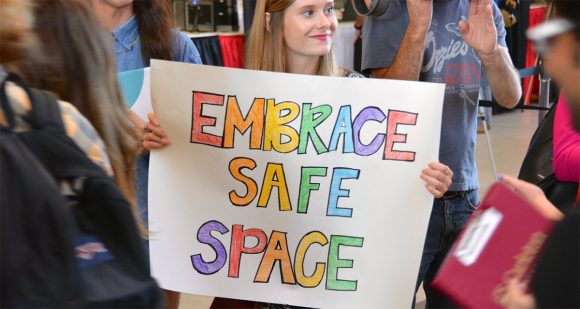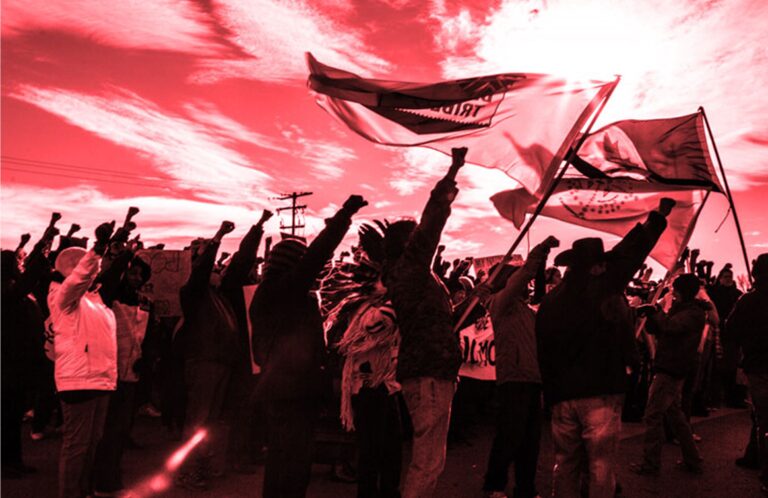As late as the 1970s Canadian and American university campuses were obsessed with freedom – freedom from racial discrimination, freedom from sexual inhibitions, freedom from want and war and, especially, freedom to think and say anything, no matter how rude, offensive or outrageous. But within a decade or so, conservative culture critics like Allan Bloom and Dinesh D’Souza were writing best-selling books such as The Closing of the American Mind and Illiberal Education, which chronicled the rise of militancy and extremism among students and academics whose tolerance for freedom was proscribed by their insistence on conformity to a suite of values and rules that came to be known as “political correctness”.
The repression of contrarian ideas and persecution of those who express them, on and off campuses, has only grown more oppressive in the decades since. Today it is common for student groups to be banned from operating on campus if their beliefs conflict with the prevailing view of their student union; for speakers to be deemed too controversial to appear on campus; for students and faculty to be reprimanded for challenging PC orthodoxy.
We at the Justice Centre for Constitutional Freedoms have been advocating and acting for the cause of free expression since our founding in 2010. In 2011, inspired by the wisdom of Fraser Institute founder Dr. Michael Walker in his oft-repeated dictum, “If it matters, measure it,” the Justice Centre produced Canada’s first-ever survey on the performance of our public universities in upholding free speech on campus. Our Campus Freedom Index has been compiled every year since, measuring how well (or not) these taxpayer-funded institutions live up to their stated mission of facilitating the free exchange – and frank debate – of ideas.
In 2016, the Justice Centre released its sixth annual Campus Freedom Index. Using a five-tier letter scale (A, B, C, D and F), the Index grades universities and student unions on their stated policies (what they say) and their practices (what they do). The report uses specific, measurable and replicable criteria to assess the free speech climate on Canadian campuses, giving university administrators and student union executives clear performance benchmarks to aim for – if they choose to do so.
The Campus Freedom Index looks specifically and exclusively at public universities. Unlike private universities, public universities exist by provincial statute, and typically receive half or more of their funds from taxpayers, through provincial government subsidies. They have a legal obligation, under the Canadian Charter of Rights and Freedoms as well as through their own policies and principles, to uphold free expression rights.

Sadly, the 2016 Index finds that there are still far too many universities in Canada where free expression is at risk, but progress has been made at a number of campuses. For example, both the Carleton University Students Association (CUSA) and the University of Saskatchewan Students’ Union (USSU) have improved their grade in the Campus Freedom Index by passing policies which directly improved the state of free speech on their campuses.
‘I’ for improvement
In 2012 CUSA reversed its Discrimination on Campus Policy from sanctioning overt censorship to supporting free expression. Formerly, CUSA’s policy prohibited “any campaign, distribution, solicitation, lobbying effort, display, event etc. that seeks to limit or remove a woman’s right to choose her options in the case of pregnancy” such that “no CUSA resources, space, or funding will be allocated for the purpose of promoting these actions.” This policy effectively banned a pro-life club from campus entirely, and was arbitrarily used to prevent outside groups from attending campus events. One of its targets was the mainstream American conservative think tank the Heritage Foundation, which CUSA judged guilty of inciting hate. Such blatant examples of politically-charged censorship earned CUSA an ‘F’ grade in the Index.
To its credit, however, CUSA reversed its policy, passing a motion which mentioned the Campus Freedom Index as a catalyst for the change:
“Whereas Carleton University and CUSA received failing grades for restricting free and fair dialogue, in a recent [Campus] Freedom Index report conducted by the Justice Centre for Constitutional Freedoms…
…Be it resolved that item 2 of the current Discrimination on Campus Policy be replaced with the following:
2. CUSA will ensure that its members have access to facilities and resources without fear of discrimination based on a person or group’s racial, religious, political, or sexual distinction.
Be it resolved that Council strike ‘members of the Klu Klux Klan, the white Aryan Resistance, the Heritage Front, the Heritage Foundation, Canadians for the Preservation of English’ in item 4.”
In 2015, CUSA improved its game further by passing a template Resolution in Support of Free Expression, drafted by the Justice Centre for use by student unions. The Resolution was proposed by CUSA president Folarin Odunayo, providing students with a strong defence against any attempts to silence their expression on campus. CUSA now earns one of the highest ratings of any student union in Canada, thanks to these positive reforms.
The University of Saskatchewan Students Union (USSU), which earned failing grades in the Campus Freedom Index in 2011 and 2012, passed a motion the following year that unequivocally upholds the free expression rights of students on campus. With input and advice from the Justice Centre, the USSU passed a Free Speech Policy which commits the USSU to uphold free speech rights on campus while refraining from content-based censorship against students and student groups. The new policy reads:
…the Student Union will support and protect the free speech of all parties under its jurisdiction. The Student Union will not endeavor to limit or prevent the exercise of free speech on campus and will work to aid those parties whose free speech rights are threatened. The Union further recognizes the fair and reasonable limitations on free expression as stated in the Canadian Charter of Rights and Freedoms and the Criminal Code of Canada and pledges not to exercise censorship outside of these legal limits. When members of the Union use speech as a direct attack that has the effect of preventing the lawful exercise of speech by members or invited guests, or interfering with the conduct of authorized University business, the Student Union may intervene…
In 2014, the Acadia University Students Union (ASU) in Nova Scotia improved its grade from ‘C’ to ‘A’ in the Campus Freedom Index, earning a rare ‘A’ for coming to the defense of its student newspaper, The Athenaeum, during a dispute with its printer. To illustrate an edition about female sexuality, the newspaper had put an illustration of a topless woman on the cover. Fearing controversy and possible litigation, the printer refused to publish it until the ASU stepped in and worked with both parties to reach a compromise.
In 2013, after protestors disrupted a pro-life lecture on the Brock University campus in St. Catharines, Ontario, the Brock University Students Union (BUSU) rose to the defence of free expression and issued this statement: “BUSU is an organization representing over 17,000 undergraduate students whom have varying opinions, ideologies, religious, political and social views. BUSU’s mandate is not to voice an organizational opinion on such topics. It is BUSU’s mandate to ensure that students are able to voice their views, thoughts and beliefs in a respectful, organized and safe manner.” By demonstrating its commitment to upholding the free exchange of ideas on campus, BUSU raised its Index grade from ‘D’ to ‘B’.
The students on Queen’s University’s Alma Mater Society (AMS) received an ‘F’ in 2013 for censoring visual presentations by selected campus groups. But in 2014 they voted to respect the right of all groups to have equal access to AMS services regardless of their political views, and improved their grade from ‘F’ to ‘C’ by rejecting a motion to de-ratify the Men’s Issues Awareness Society. The defeated motion had proposed that the men’s rights club should be banned “because of the manner in which its members have chosen to publicly undermine feminism and anti-rape culture discourse on campus”.
The University of Calgary administration improved its mark from ‘F’ to ‘D’ after choosing to comply with the 2014 court ruling in Wilson v. University of Calgary. The court vindicated seven students whom the university had found guilty of “non-academic misconduct” because they peacefully expressed pro-life opinions on campus.
A helpful donor guide
The Campus Freedom Index also provides alumni with information that helps them make donation decisions. For example, Calgary-based engineer and McGill University alumnus Colin Campbell donated to his alma mater for 35 years, until he discovered that McGill earned a ‘D’ average in the Campus Freedom Index. Campbell chose to cease his giving to McGill until the university improved its grade. He has applied the same standard to his giving habits to the University of Calgary, due to its record of silencing unpopular views.

In addition to these visible improvements, the Campus Freedom Index appears to be increasing awareness and appreciation of the importance of free expression among student organizations. One might reasonably ask: How many student councilors have voted against censorship policies because they learned about the legal and ethical basis for free speech rights from the Index? How many students, inspired by court actions that the Justice Centre has launched against student unions and universities, are resisting censorship rather than acquiescing to it? How many off-campus journalists are more closely monitoring and writing about censorship at Canadian universities?
While these improvements are laudable, much work remains to be done. Out of 240 grades awarded to 60 universities and 60 student unions in 2016, there were only six ‘A’ grades. Conversely, ‘F’ grades were earned 32 times.
The biggest threat to freedom of expression is the misguided notion that people in a free society have a legal right not to be offended. High school and university students are rarely taught that freedom of expression serves to protect opinions which the majority considers to be wrong, offensive, hurtful, and false.
What can Canadians who are concerned about the threats facing free expression on campus do to fight back? The Campus Freedom Index provides the intellectual ammunition needed for parents, students, and concerned taxpayers to hold universities accountable for censorship. Through their provincial legislatures, all these stakeholders can hold universities accountable to their mission of protecting the free exchange of ideas on campus. Our public universities receive billions of dollars per year from provincial governments in operating funding. It is entirely within the provinces’ jurisdiction to attach strings to this funding. If universities don’t uphold free speech, democratic governments can and should withhold their funding.
Mandatory student unions
Reform is also needed of the rules governing student union membership. Unlike students in Australia and New Zealand, Canadian students at public universities are forced to join their student union, paying hundreds (or sometimes thousands) of dollars in extra fees to do so. But student union elections typically see voter participation at less than 20 percent. The reasons are understandable: students attend university to prepare for adulthood by gathering the knowledge and skills needed to pursue a satisfying and rewarding career, and often have little time for student politics. That leaves student unions vulnerable to domination by activists with extremist agendas. Student unions often take political positions on issues unrelated to post-secondary education and students’ interests, such as climate change, gender identity, and the “Boycott, Divestment, Sanctions” movement against Israel. Students who disagree with these positions are then denied the right to form campus clubs. If students had the option of choosing whether to join their union and pay dues, student politicians would likely refrain from imposing their personal political beliefs on the entire student body.
Finally and importantly, a culture shift is needed to remind students – and all Canadians – why free speech matters. Without free expression, countless social movements of the modern era would have been impossible, whether it’s the abolition of slavery, the end of the Vietnam war, or the fight for civil rights and gay rights. Universities need to educate students and faculty about the importance of academic freedom, and how it enables societies to advance scientifically, economically and socially. Yes, free speech will often result in hurt feelings. But this discomfort is part of the real world, and handling discomfort maturely and with intelligence is an essential life skill.
Fortunately, reasonable students are taking notice of the growing absurdity of the ‘safe space’ movement, “trigger warnings,” and “micro-aggressions”. They are speaking out against this ideology. Through the Campus Freedom Index, our legal work, and on-campus education, the Justice Centre is empowering these students to make a difference.



